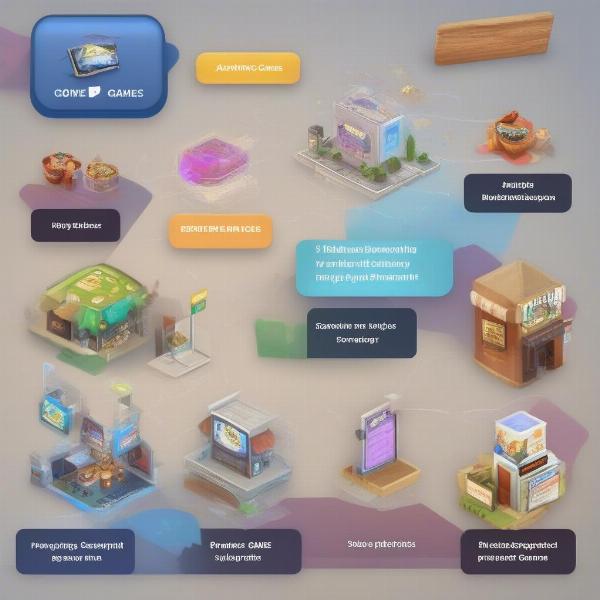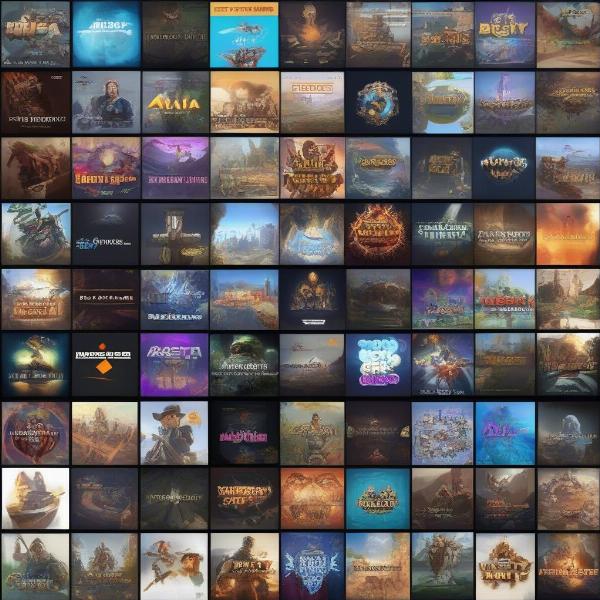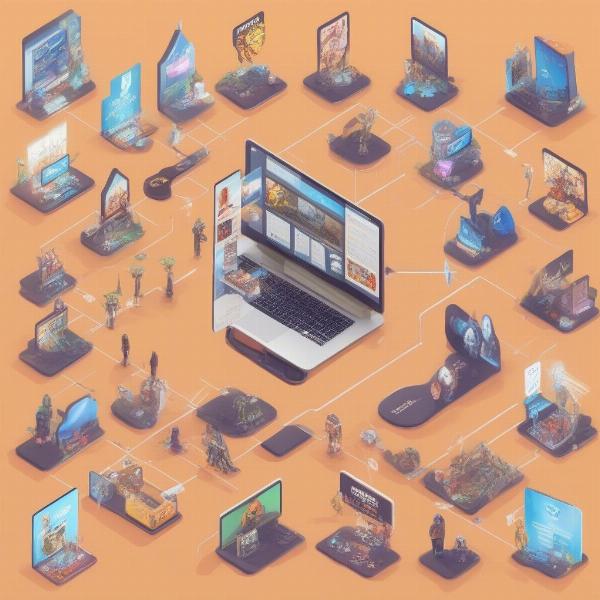The question “Do Unity Games Really Pay Out?” is a common one, especially for aspiring game developers and players alike. The allure of turning a passion project into a profitable venture is undeniable, and the gaming industry’s booming success stories fuel this dream. But the reality is more nuanced than a simple yes or no. Let’s dive into the intricacies of monetization in Unity games and explore the various factors that influence your chances of earning real money.
Understanding the Unity Game Landscape
Unity is a powerful and versatile game engine used to create games for a wide range of platforms, from mobile and PC to consoles and virtual reality. Its accessibility has democratized game development, allowing indie developers to bring their visions to life. However, this also means the market is flooded with games, making standing out and earning revenue a significant challenge. Success isn’t guaranteed, and it requires a combination of a great game, a solid monetization strategy, and a little bit of luck. Similar to the excitement surrounding live sporting events, as discussed in our article about how much is a suite at a cowboys game, the gaming world offers a similar level of passion and potential for financial success.
 Exploring Different Unity Game Monetization Models
Exploring Different Unity Game Monetization Models
Monetization Strategies for Unity Games
There are several ways to monetize your Unity game, and choosing the right strategy depends on your game’s genre, target audience, and overall design. Here are some of the most common methods:
- In-App Purchases (IAPs): This is a popular model, especially in mobile games. Players can purchase virtual goods, currency, or power-ups to enhance their gameplay. IAPs can be a highly profitable strategy, but it’s crucial to implement them ethically and avoid creating a pay-to-win scenario.
- Advertising: Integrating ads into your game is another common way to generate revenue. This can include banner ads, interstitial ads, or rewarded video ads. While advertising can be effective, it’s important to balance revenue generation with user experience, ensuring the ads don’t disrupt gameplay.
- Premium Model: This involves charging players an upfront fee to download or access your game. This model works well for high-quality games with a dedicated following. The key is to offer a compelling experience that justifies the price tag.
- Subscriptions: Offering subscriptions provides players with access to premium content or features in exchange for a recurring fee. This model can be successful for games with ongoing content updates and a loyal player base.
- Freemium Model: This combines the free-to-play model with in-app purchases. Players can download the game for free but have the option to purchase premium content or features. This model can be effective in attracting a large player base and converting a portion of them into paying customers.
 Illustrating Successful Unity Game Monetization Examples
Illustrating Successful Unity Game Monetization Examples
Factors Influencing Payout Potential
Several factors influence the payout potential of your Unity game:
- Game Quality: A polished, engaging, and well-designed game is essential for attracting and retaining players. A high-quality game is more likely to generate revenue through any monetization model.
- Target Audience: Understanding your target audience is crucial for choosing the right monetization strategy. Different audiences have different spending habits and preferences.
- Marketing and Promotion: Effectively marketing your game is key to reaching your target audience and building a player base. This can involve social media marketing, influencer collaborations, and paid advertising.
- Monetization Strategy: Choosing the right monetization strategy for your game is essential for maximizing revenue potential. The strategy should align with your game’s genre, target audience, and overall design.
- Retention and Engagement: Keeping players engaged and coming back for more is crucial for long-term success. Regular updates, community engagement, and in-game events can help boost retention rates.
 Highlighting the Importance of Marketing and Promotion for Unity Games
Highlighting the Importance of Marketing and Promotion for Unity Games
Can You Get Rich Making Unity Games?
While some Unity developers have achieved significant financial success, it’s important to manage expectations. Getting rich from a Unity game is rare and requires a combination of talent, hard work, and a bit of luck. Most developers earn a modest income, and many don’t earn anything at all. The gaming industry is competitive, and success is not guaranteed. Just like understanding the costs associated with attending a sporting event, such as detailed in our article on how much is a suite at a cowboys game, it’s essential to have a realistic understanding of the financial realities of game development.
Do Unity Games Really Pay Out? Common Misconceptions
There are many misconceptions about the payout potential of Unity games. Some believe creating a game is a quick path to riches, while others think it’s impossible to make any money at all. The truth, as always, lies somewhere in the middle.
Expert Insights
According to industry veteran, Sarah Johnson, Lead Game Designer at Stellar Studios, “Success in the Unity game market requires a long-term vision. It’s about building a community around your game and continually providing value to your players.”
So, Do Unity Games Pay?
Yes, Unity games can pay out. However, the amount you earn depends on numerous factors, including game quality, marketing efforts, and the chosen monetization strategy. It’s not a get-rich-quick scheme, but with dedication and a well-executed plan, you can potentially generate a substantial income from your Unity game.
Conclusion
The question “do Unity games really pay out?” has a multifaceted answer. While the potential to earn money from Unity games is real, success is far from guaranteed. It requires a compelling game, a strategic approach to monetization, and consistent effort. So, if you’re passionate about game development and willing to put in the work, Unity can offer a viable path to financial reward, but it’s essential to approach it with realistic expectations and a solid understanding of the industry. Don’t just dream about it, make it happen! Start developing your Unity game today!
FAQ
- What is the easiest way to monetize a Unity game? Integrating ads is often the easiest way to start monetizing, but it may not be the most profitable in the long run.
- How much can I earn from a Unity game? Earnings vary widely, from nothing to millions of dollars, depending on the game’s success.
- What are the most successful Unity games? Games like “Among Us,” “Cuphead,” and “Monument Valley” are examples of successful Unity games.
- How long does it take to develop a profitable Unity game? Development time varies depending on the game’s complexity and the size of the development team.
- Do I need coding experience to make a Unity game? While coding experience is helpful, Unity’s visual scripting tools allow beginners to get started.
- What are some common mistakes to avoid when monetizing a Unity game? Overly aggressive monetization and neglecting user experience are common pitfalls.
- Where can I learn more about Unity game development? Unity’s official website and online communities offer a wealth of resources.

